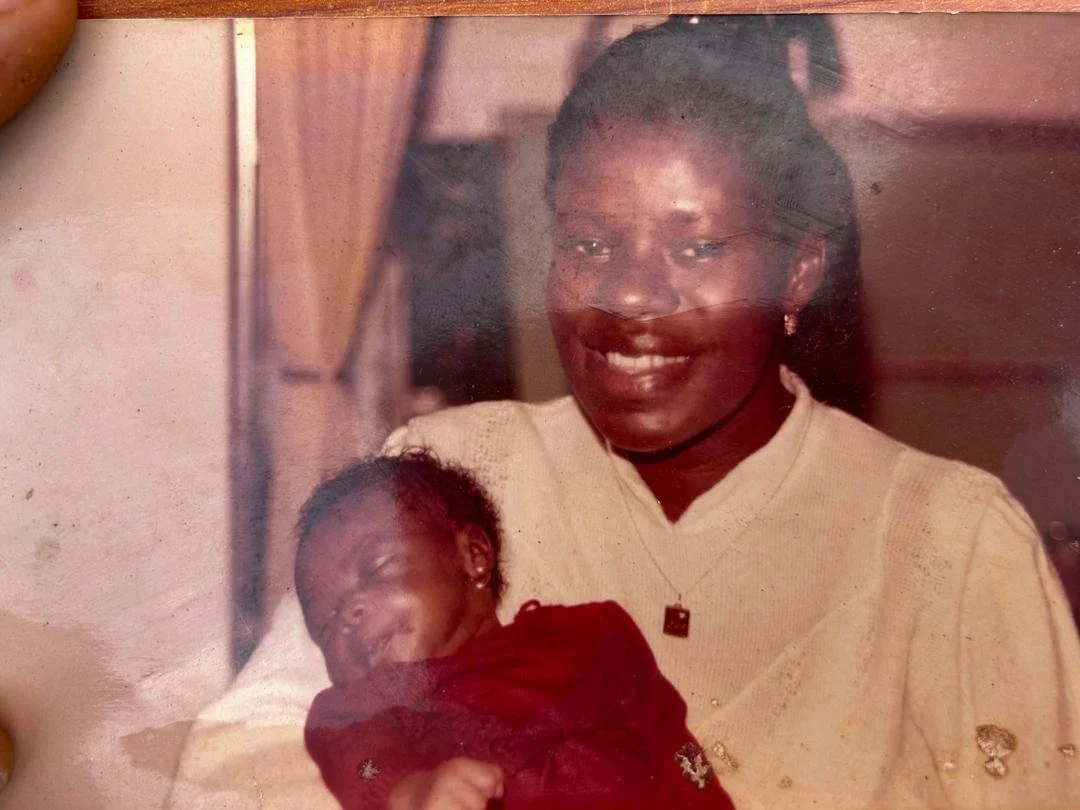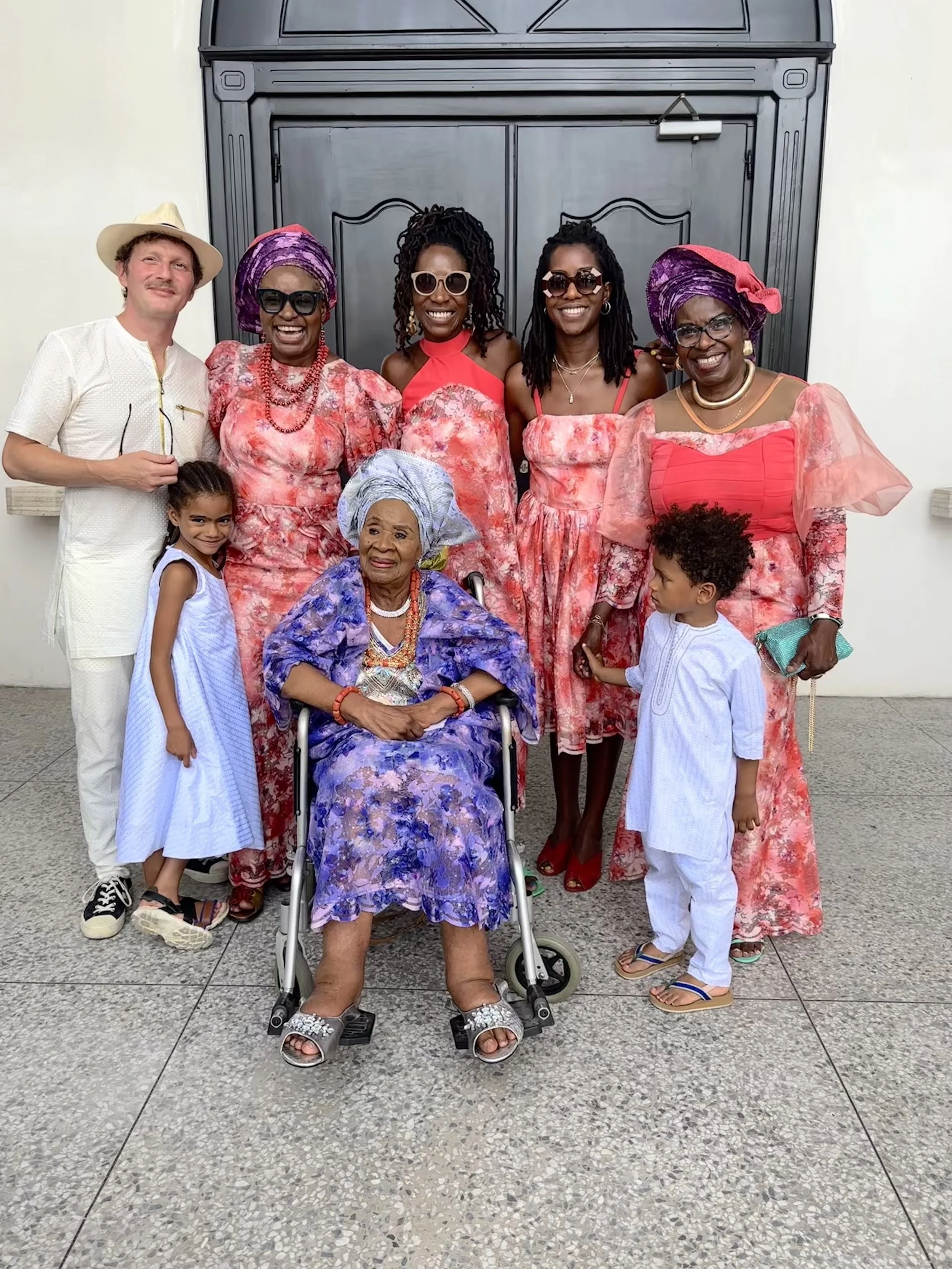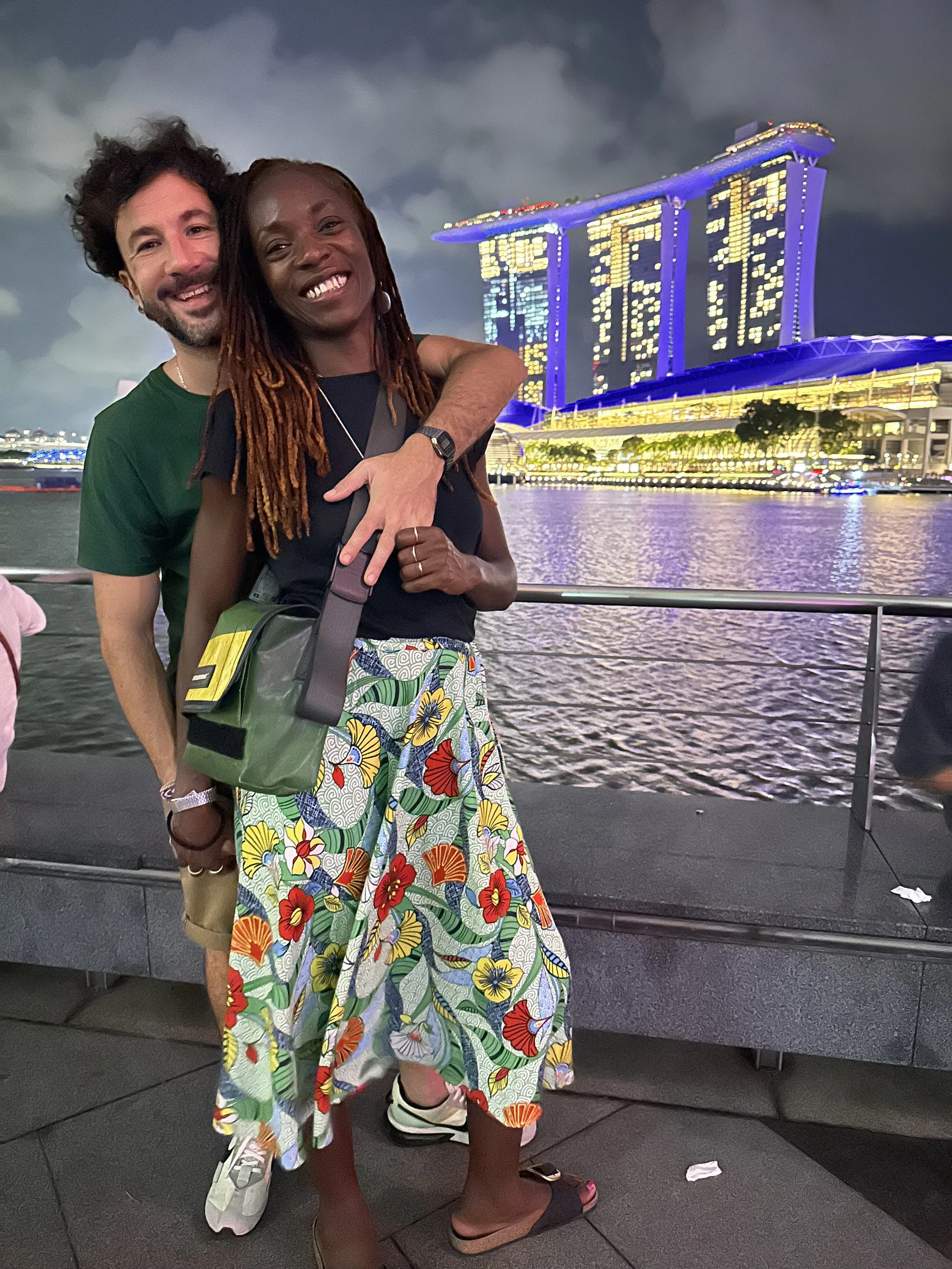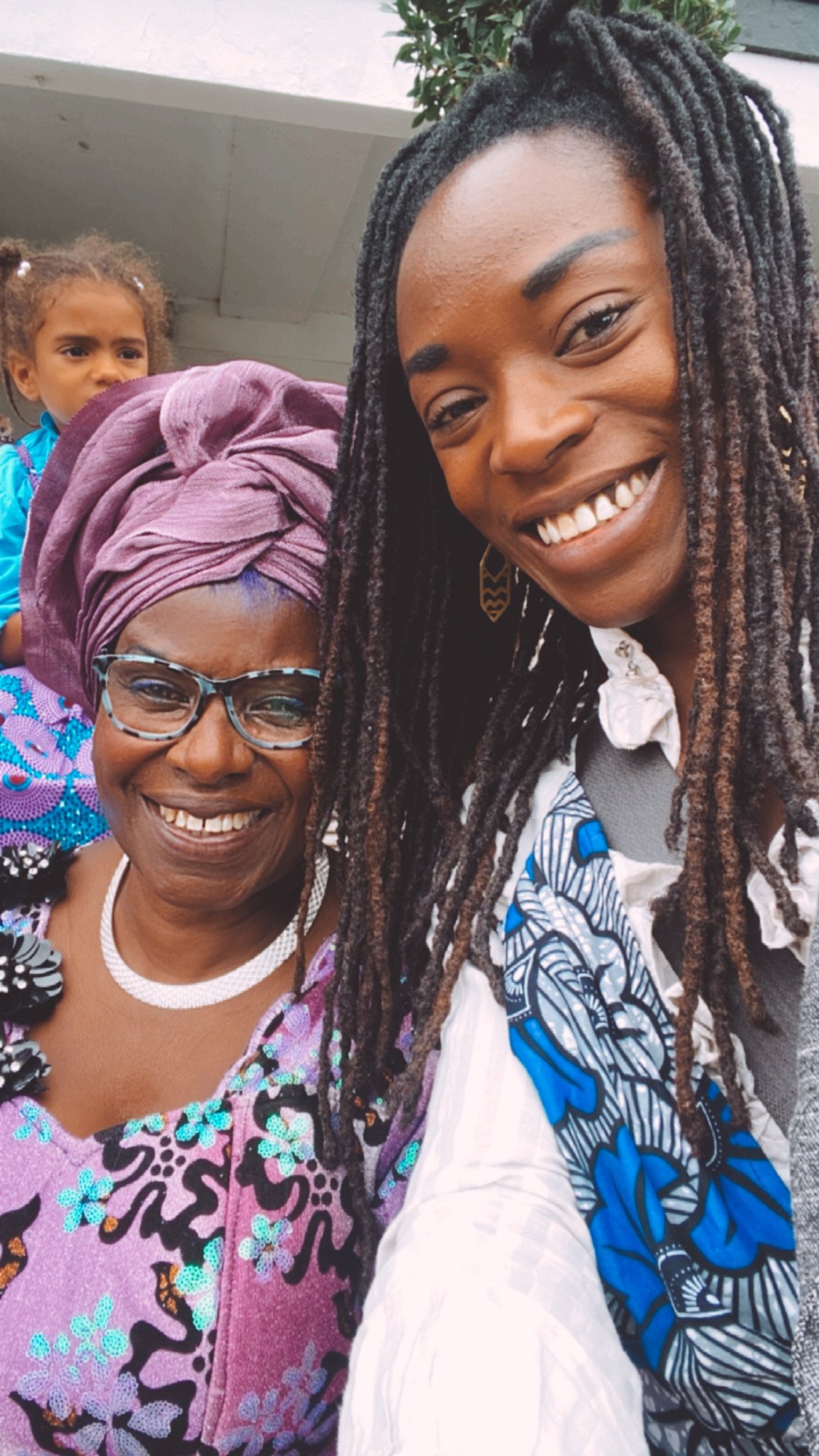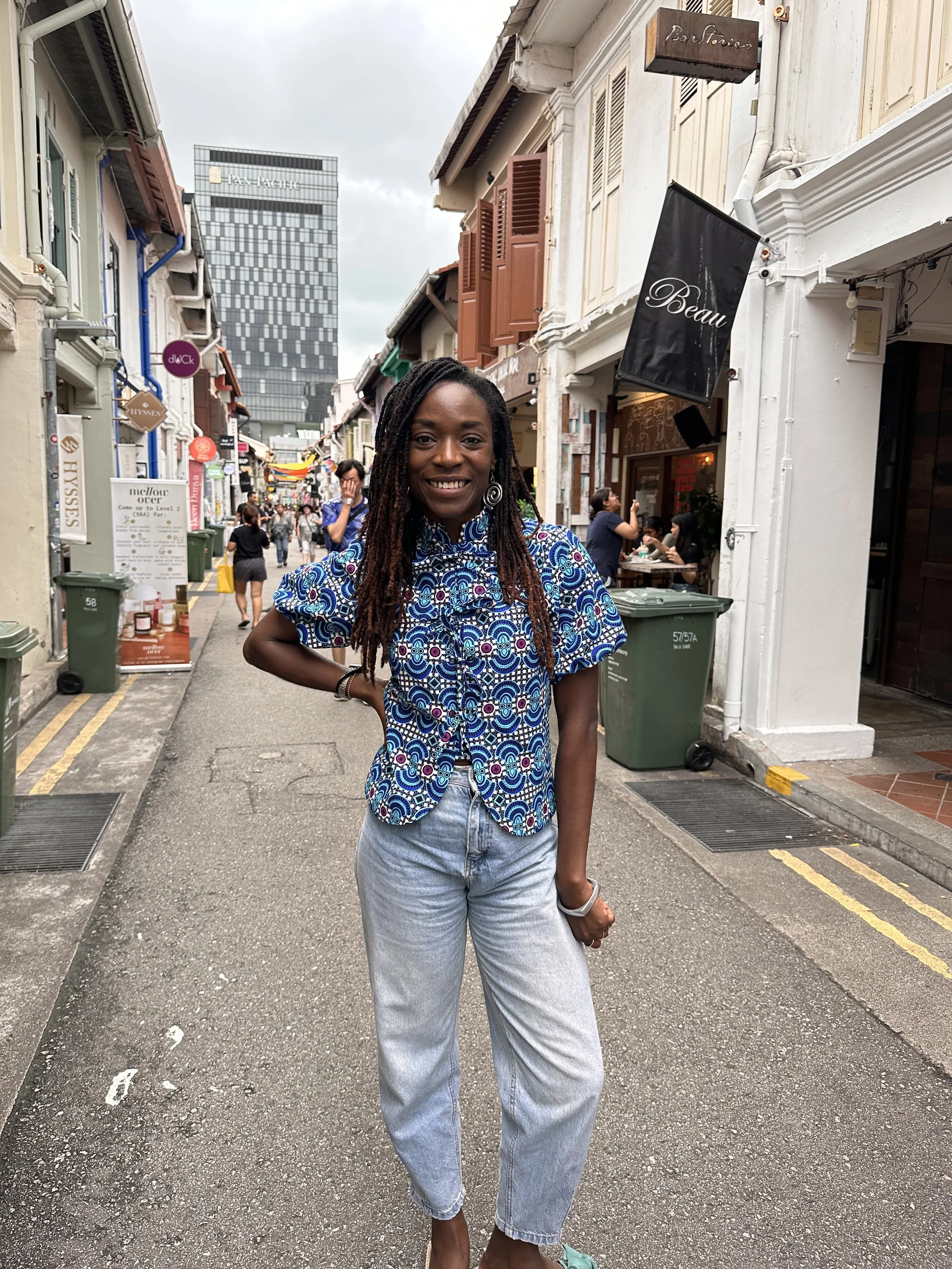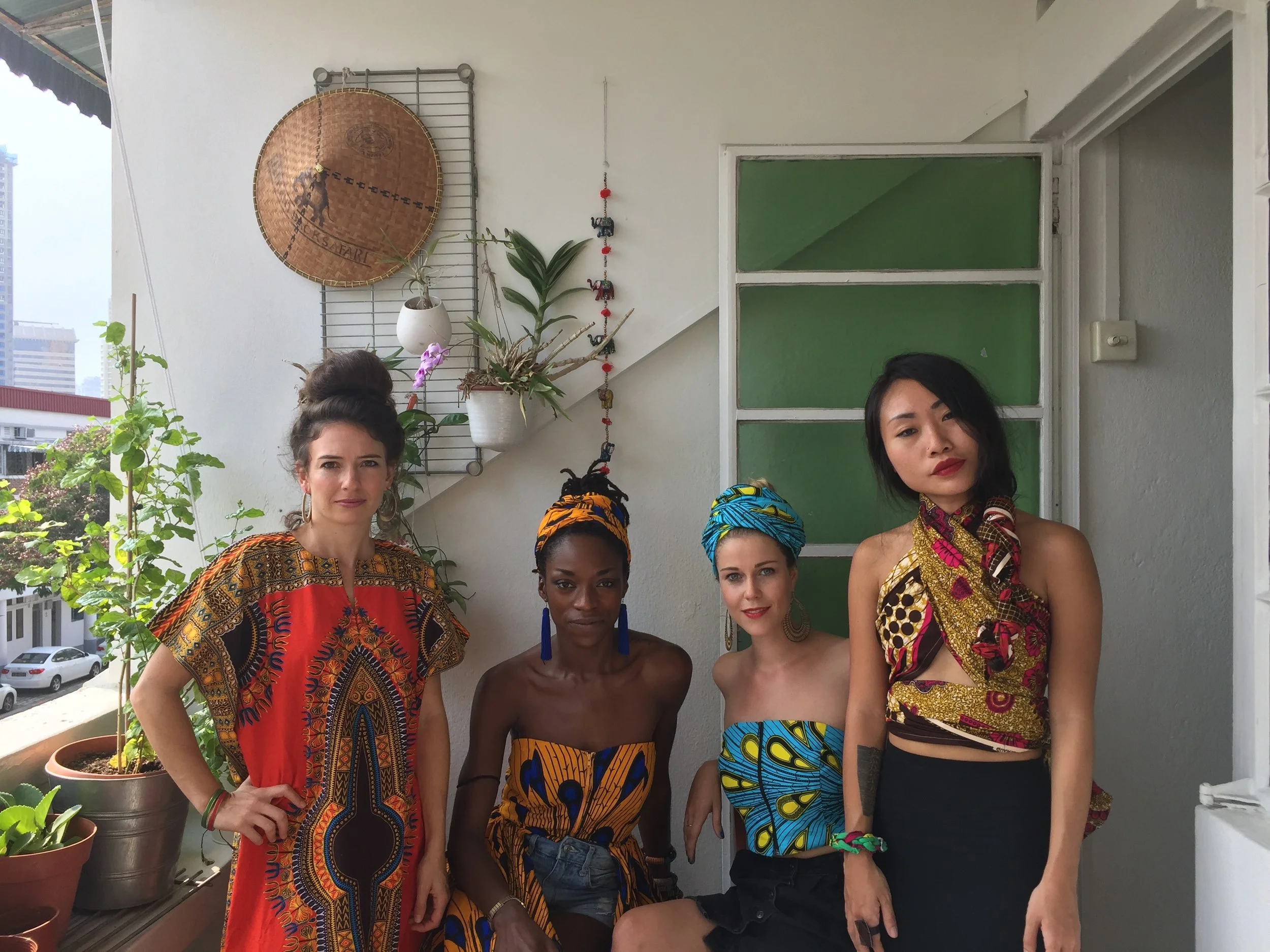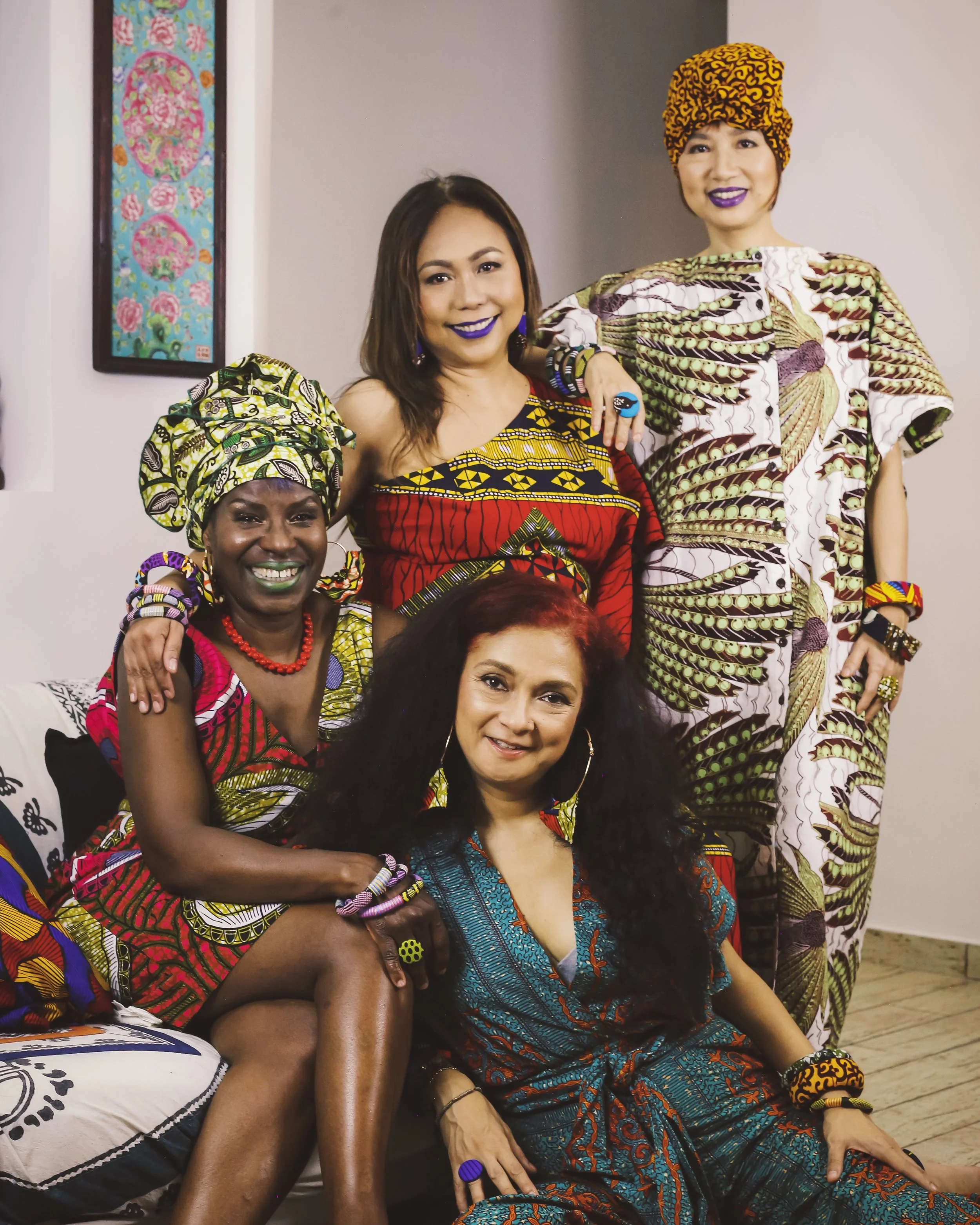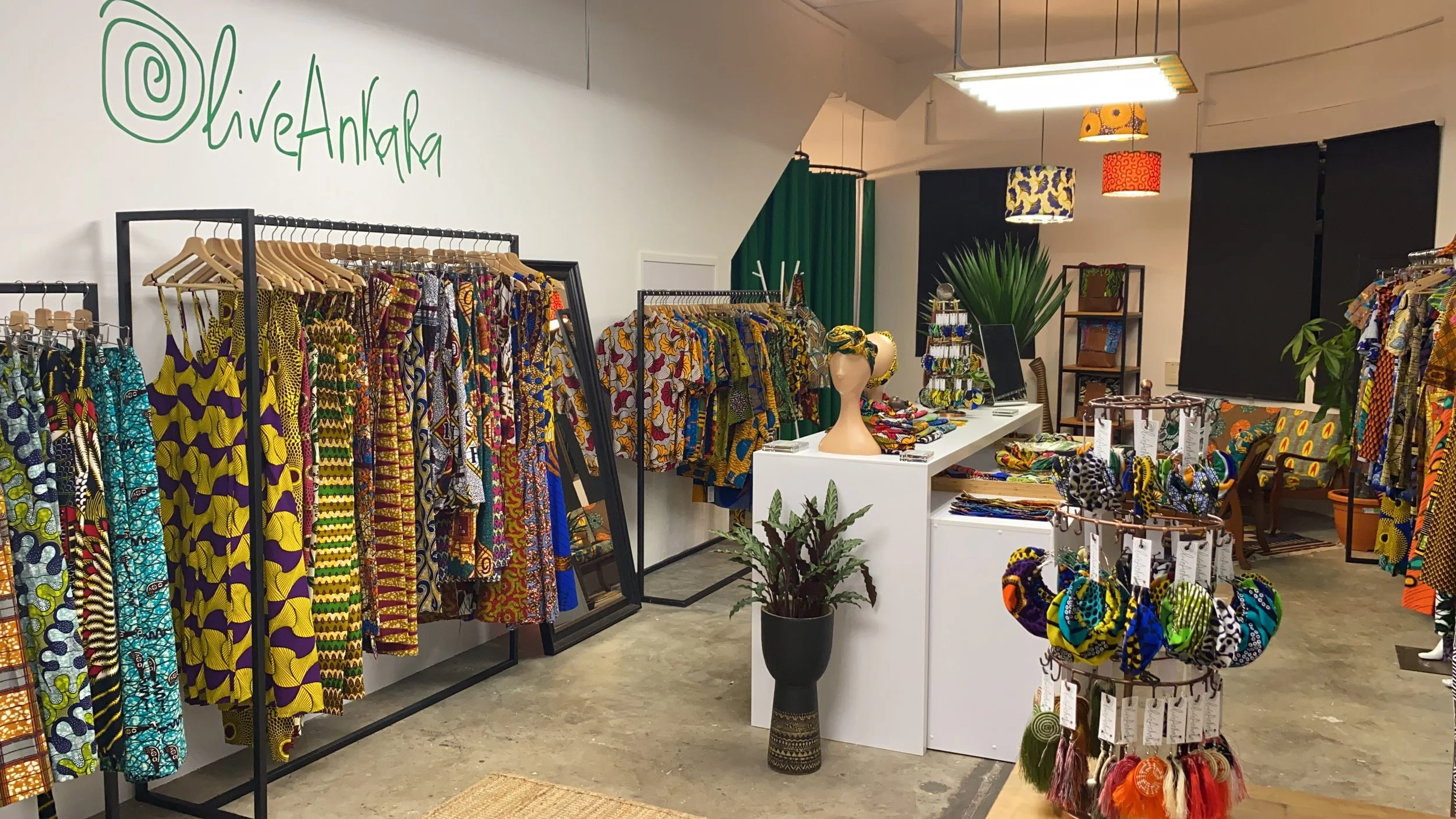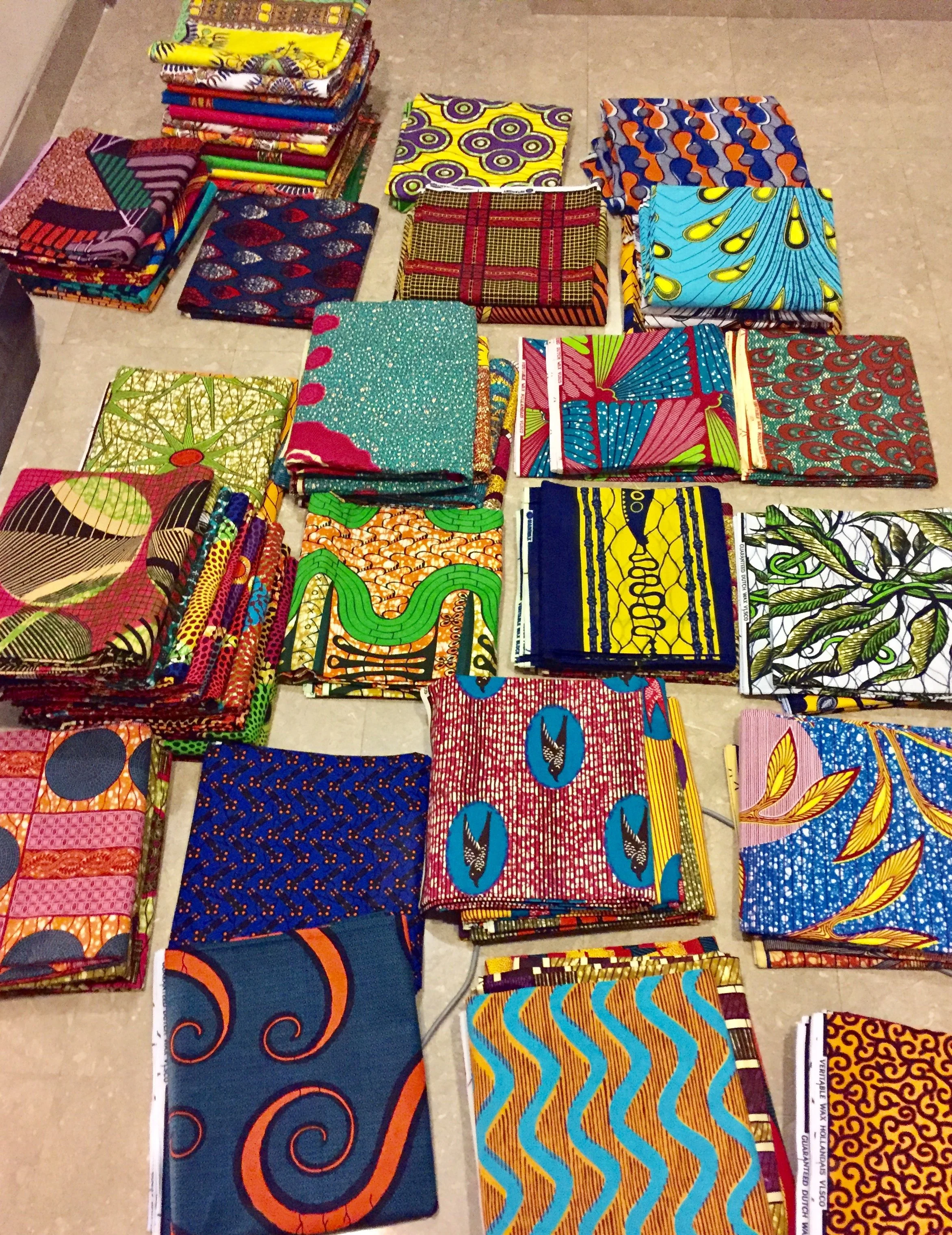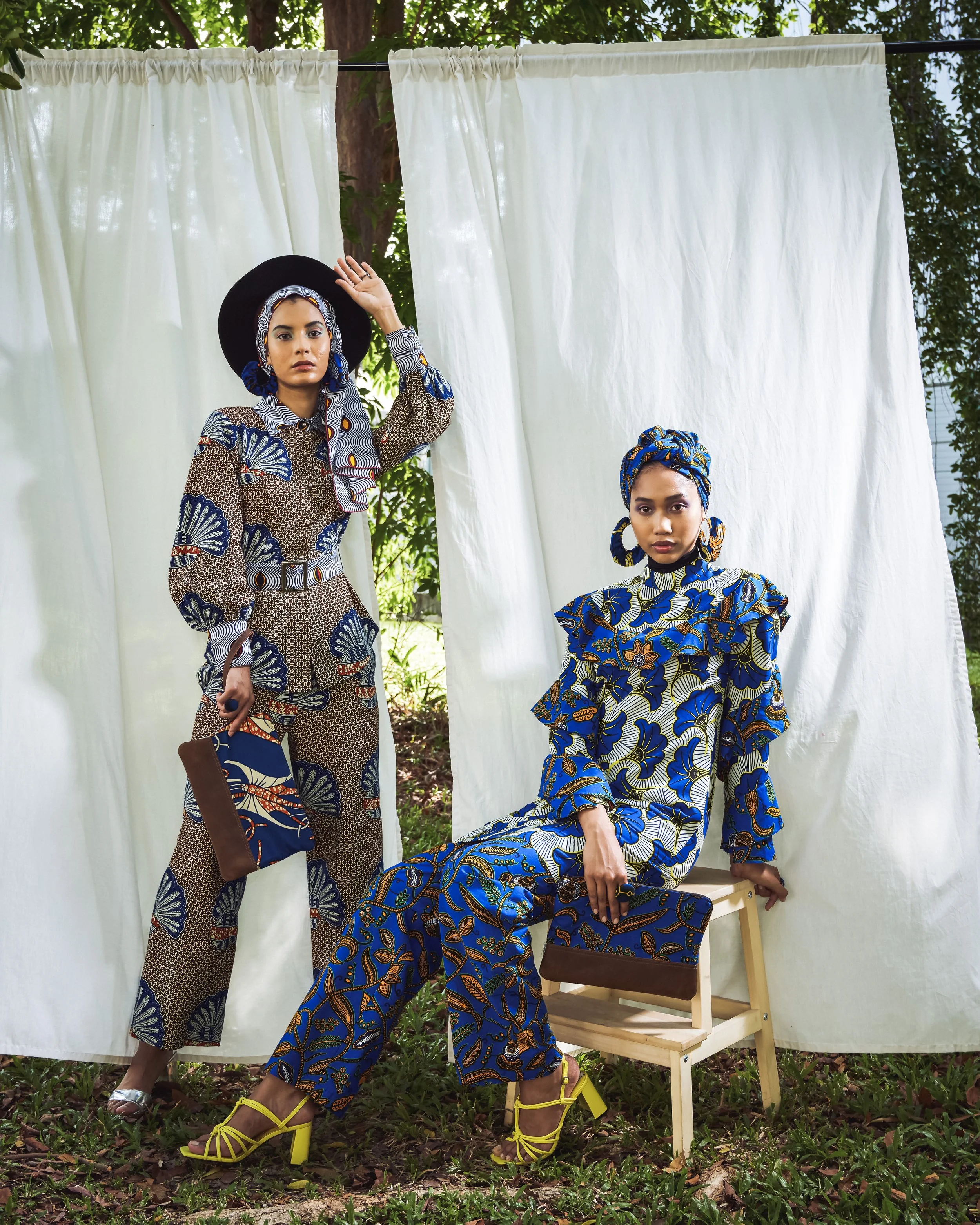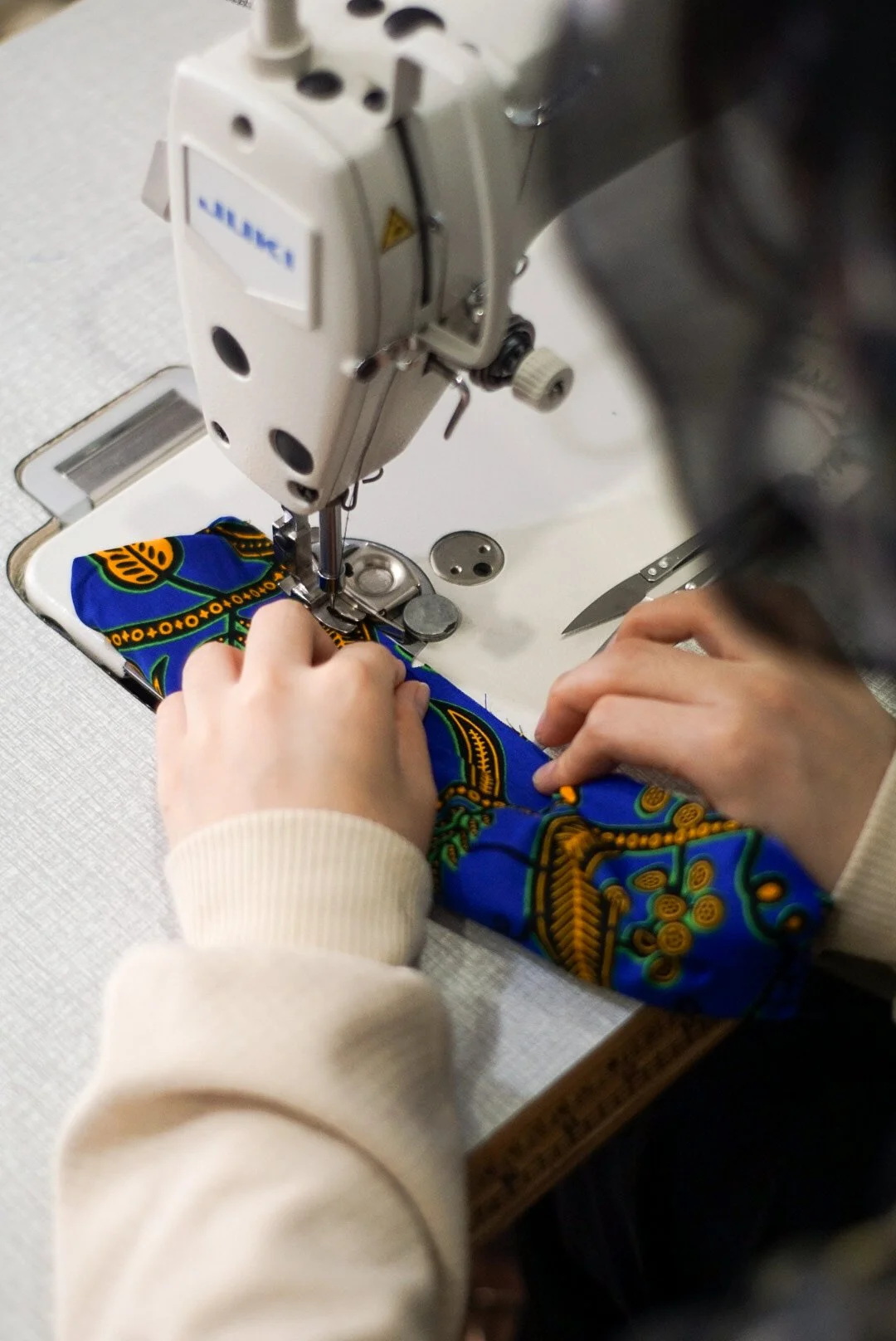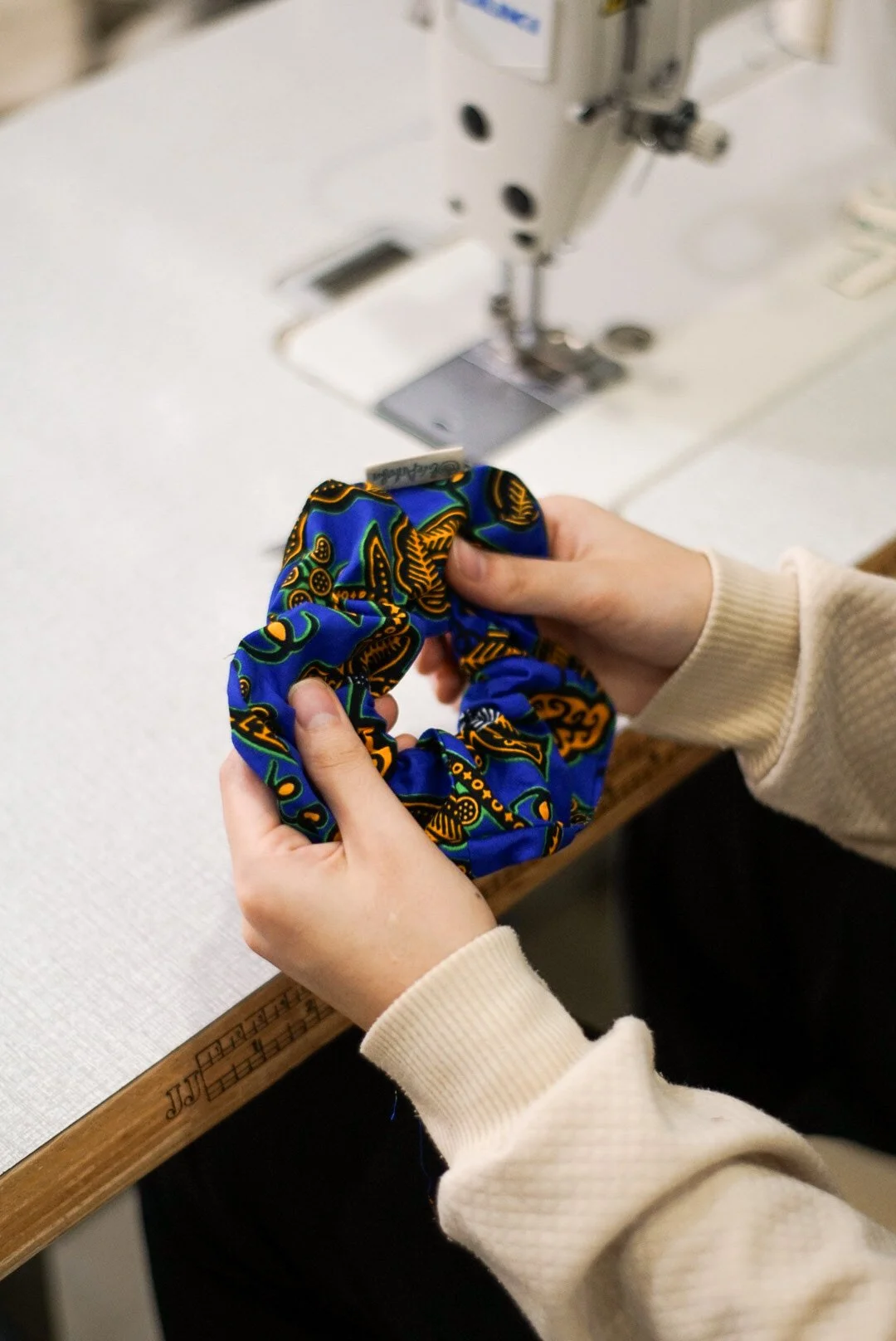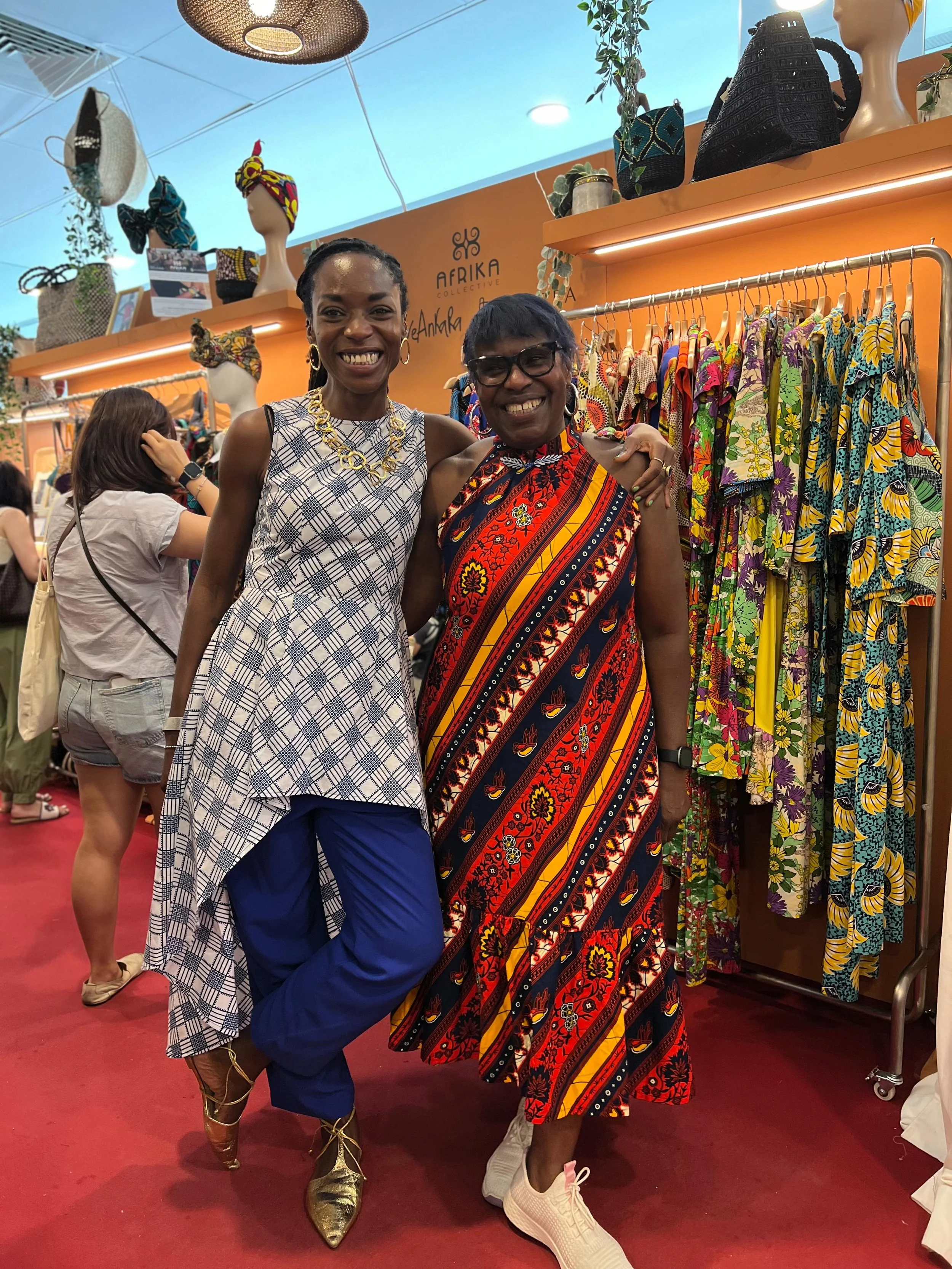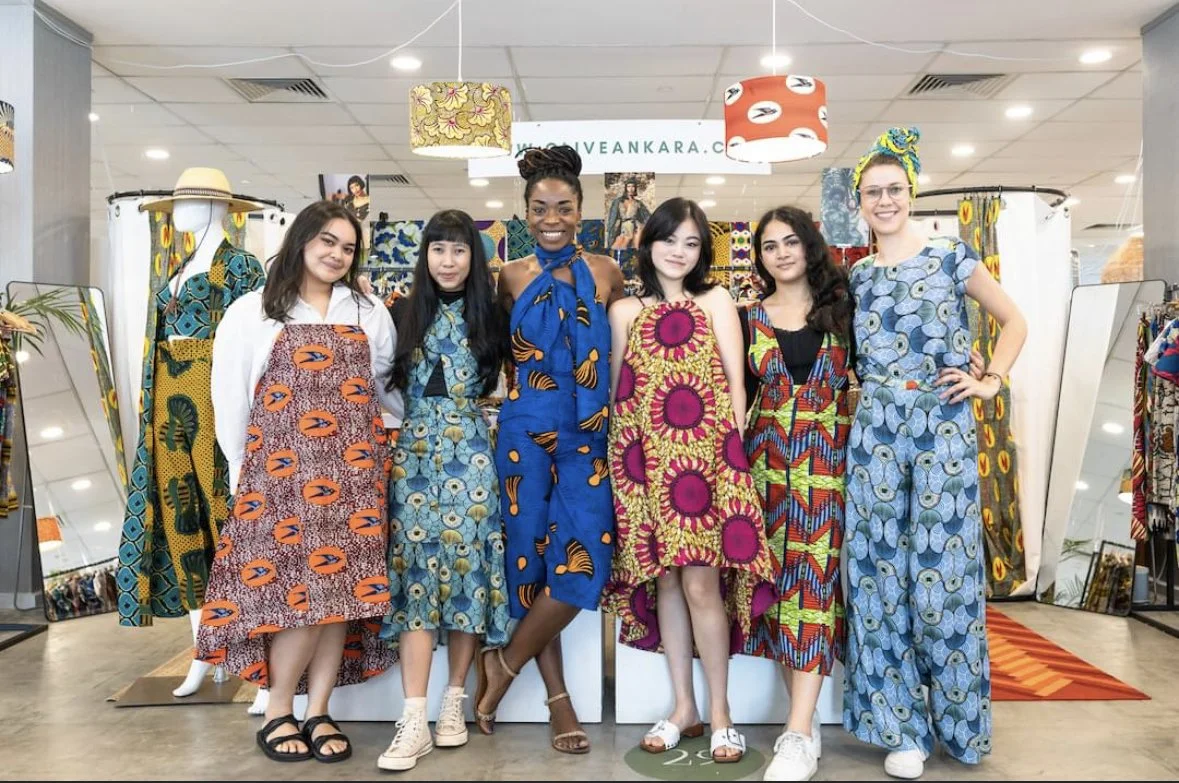Fashion & Memory: Ifeoma Ubby of OliveAnkara
Cross-cultural fashion and storytelling in Singapore
Ifeoma Ubby with her sister and Aunt Ogo, Lagos Nigeria. Photo by Adedamola Odetara. Image courtesy of Ifeoma Ubby.
Ifeoma Ubby at the first OliveAnkara showroom in Singapore. Image courtesy of OliveAnkara.
When Ifeoma Ubby began her academic career studying medical biotechnologies, her path seemed clearly mapped: she was training to become a cancer scientist. Her research in molecular biotechnology and human genetics demanded precision and discipline. Yet, outside the laboratory, another part of her identity was quietly unfolding, shaped by colour and memory. It was not until she moved to Singapore that these themes began to converge. What began as personal nostalgia and expression would evolve into a creative platform for cultural storytelling: OliveAnkara, a fashion label that brings together African textiles, Italian heritage, and Asian aesthetics. In this edition of “Fashion & Memory”, I trace Ubby’s journey from scientist to designer and explore how fashion can hold space for identity across continents.
Ifeoma Ubby as a baby with her mother in Italy. Image courtesy of Ifeoma Ubby.
Ifeoma Ubby with family for her grandmother’s 90th birthday in Lagos, Nigeria, 2023. Image courtesy of Ifeoma Ubby.
Ifeoma Ubby was born in Mirano, a town in northern Italy, to Nigerian parents who had migrated to Europe in the 1980s. Her name, Ifeoma, meaning good thing in Igbo, anchors her cultural identity, though most know her as Ify. Growing up in a household where Nigerian traditions and Italian culture co-existed, she was exposed early to hybridity in food, language, and fashion. “My family was all fashion-oriented,” she recalls. Her grandmother and aunt worked in the industry, her mother sewed clothing for the family, and even her uncle harboured a creative streak. Yet Ubby pursued science, earning a PhD in human molecular genetics from Pisa’s Scuola Normale Superiore.
Ifeoma Ubby and her husband Massimiliano Bravin, in Singapore. Image courtesy of Ifeoma Ubby.
In 2013, Ubby moved to Singapore for a postdoctoral position at the National Cancer Centre. “My husband and I went on a blind date with Asia,” she jokes. “Booked a one-way ticket to Singapore and we never looked back.” Ubby could not help but notice a void: only an estimated 2,000 people of African descent among six million residents. “When you’re far away from something that is always there at home,” she reflects, “you really realise how that is part of you, and you feel homesick.”
Ifeoma Ubby and her mother in the United Kingdom. Image courtesy of Ifeoma Ubby.
Ifeoma Ubby wearing the OliveAnkara “Stephanie Cheongsam Top” in Haji Lane, Singapore. Image courtesy of Ifeoma Ubby.
Feeling a longing for home, Ubby began wearing her mother’s ankara prints, their bold patterns drawing curiosity from strangers. “People were really interested in what I was wearing,” she recalls. “They would ask, ‘What is this? What is the meaning?’ I realised that people were culturally curious.” What began as personal nostalgia evolved into a visual dialogue as a way to assert cultural presence and bridge cultures.
Ifeoma Ubby with her husband Massimiliano Bravin and family at their wedding, Phi Phi Islands, Thailand, 2016. Image courtesy of Ifeoma Ubby.
This renewed relationship with fashion deepened in 2016, while planning her wedding in Thailand. Faced with limited access to African fabrics in Singapore, she turned to her family for help. Her mother and grandmother shipped textiles from Lagos and her aunt brought the finished gown to Thailand. Her international guests were captivated by the expressive colours, silhouettes, and symbolism embedded into each piece. For Ubby, it was a revelation: “That is when I knew I needed to do something,” she says. “I needed to fulfill a gap, because I felt like my culture was not represented. For me, the easiest way was through fashion.”
Ifeoma Ubby and friends wearing OliveAnkara in Tiong Bahru, Singapore. Image courtesy of Ifeoma Ubby.
Ifeoma Ubby’s mother, seamstress, photographer, and friend modelling OliveAnkara. Image courtesy of OliveAnkara.
Returning to Singapore, Ubby enrolled in a sewing course in Chinatown and began experimenting with designs using fabrics sent from Nigeria. Supportive friends modeled her pieces, and an Instagram post led to media attention. “Someone saw it on Instagram, reached out straight away, and The Straits Times wrote an article, even before I officially launched the brand,” she recalls. Those early fashion experiments evolved into something more intentional.
The former OliveAnkara showroom located in Tiong Bahru, Singapore. Image courtesy of OliveAnkara.
In July 2018, OliveAnkara debuted as “the meeting point of African fabrics and modern fashion design...with an Italian taste.” Initially a side project alongside her scientific research, the brand quickly gained momentum. By December 2019, Ubby had completed her research on the p53 gene and published her findings in Nature Oncogene. She then pivoted full-time into fashion. “People want to embrace this journey with me,” Ubby explains. “What I can observe is that people want to really express themselves through our colours and feel free to be able to express themselves.”
Market in Lagos, Nigeria. Image courtesy of Ifeoma Ubby.
Ankara fabrics sourced from Lagos, Nigeria. Image courtesy of Ifeoma Ubby.
Ankara prints are often seen as synonymous with West African visual culture, but their origins are quite complex. Dutch manufacturers mass-produced the prints to mimic Indonesian batik in the 19th century, targeting Southeast Asian markets. However, the textiles failed to gain traction and were pivoted to West Africa. Over time, the prints were reclaimed, adapted into larger motifs, brighter colours, and layered with new meanings, becoming symbols of cultural pride. “Every ankara pattern has a story behind it and a meaning,” Ubby notes. “The meaning was normally given by the women that were selling the fabrics at the market.”
The Chinese New Year OliveAnkara cheongsam, 2021. Image courtesy of OliveAnkara.
This legacy of reinterpretations continues in OliveAnkara’s designs. The brand’s standout “Ankara Cheongsam” merges the Nigerian wax prints with Chinese tailoring details such as the Mandarin collar and knotted buttons, bridging her heritage and adopted home. “Each piece has a story behind it that does not link only to African culture, but it is a mix of cultures,” she says.
The OA ORIGINALS prints. The “Garden Mosaic” print featured on top. Image courtesy of OliveAnkara.
In 2021, OliveAnkara launched OA ORIGINALS, a line of in-house prints developed by Ubby herself. The debut AJO AYE collection, Yoruba for ‘colourful journey’, was produced using biodegradable TENCEL™ Lyocell eco-fiber, marking a shift toward more sustainable practises. The “Garden Mosaic” print blends together flora from Africa (baobab), Asia (bird of paradise), and Italy (alpinia), symbolising a global garden and parts of Ubby’s story.
Garments from the Raya capsule collection, inspired by Singapore’s multicultural heritage, including the Baju Raya ensemble (right), 2021. Image courtesy of OliveAnkara.
Her commitment to cultural hybridity gained institutional recognition in 2023 when her “Ayesha Ankara Baju Raya” (a Malay-inspired ensemble in African prints) was featured in the Asian Civilisation Museum’s #SGFASHIONNOW exhibition, cementing OliveAnkara’s place in Singapore’s multicultural narrative.
The making of the OliveAnkara scrunchie. Image courtesy of OliveAnkara.
This move to original prints also aligned with the brand’s environmental goals. Leftover fabric is repurposed into new garments and accessories through capsule collections. With the help of NuCycle, OliveAnkara calculates the water footprint of its collections and offsets waste by converting plastics into renewable fuel in Indonesia. The brand has also eliminated new plastic use in packaging and products.
Ethical production is also central to OliveAnkara’s mission. Beyond sustainable materials, the brand supports organisations like Daughters of Cambodia, a Phnom Penh-based social enterprise offering job training to survivors of sex trafficking. Ubby’s approach connects environmental responsibility with social justice, seeing both as interwoven elements of care.
Ifeoma Ubby at the Afrika Collective in Singapore, showcasing the OliveAnkara collaboration with Ashepa, 2024. Image courtesy of Ifeoma Ubby.
Ubby resists rigid definitions of African fashion. Her designs reflect her hybrid identity, not a monolith. When asked, “Is this really African?”, she replies, “Yes, I have made it, so it is African.’” Her designs reflect lived experience, not stereotypes. She also addresses concerns about cultural appropriation head-on. “If you know the history behind what you’re wearing and you wear it with respect, you’re not doing any harm,” she elaborates. “Appropriation is when a dominant community takes something from a marginalised community and makes it theirs. That is not what we are doing at OliveAnkara.” The brand’s website features accessible resources, including a history of ankara prints and overview of black prominence in the fashion industry, along with detailed context behind each collection and print.
Ifeoma Ubby with models and friends in OliveAnkara. Image courtesy of OliveAnkara.
OA tribe in OliveAnkara Cheongsams and Rafi Dress. Image courtesy of OliveAnkara.
Ubby credits Singapore’s diverse environment with shaping her inclusive vision. “When I moved to Singapore, I realised it is the best place to represent the world’s melting pot,” she says. “Singapore showed me the meaning of cultural appreciation. That’s the DNA behind OliveAnkara.” The brand’s campaigns feature diverse models across age, body type, and race. Through community-building initiatives like the “OA World” page, customers are invited to share how they style and interpret the brand.
Ifeoma Ubby at the Boutique Fairs Singapore, 2023. Image courtesy of Ifeoma Ubby.
As OliveAnkara continues to grow, it offers more than clothing, but a reimagined space where fashion acts as a tool for cultural storytelling. For Ubby, the designer-scientist, her work bridges her personal history across continents with a fluid, evolving sense of identity.“It is also about the beauty of cultures. We all come from different places and so often we embrace one another’s traditions, love them, and make them our own,” she says. “It is amazing how cultures blend and enhance each other.”
To learn more about Ifeoma Ubby and OliveAnkara, check out the brand’s website and Instagram or find their collections in Singapore at Therapy Market at Wheelock Place, Swapaholic at Anchor Point, and The Fashion Pulpit -TFP | Circular Fashion Hub.
About the Writer
Faith Cooper is the creator of the Asian Fashion Archive. She graduated from FIT, studying art and fashion history. Under the Fulbright programme, she is researching Taiwanese fashion and cultural identity at Fu Jen Catholic University in Taiwan. To learn more or connect with Faith, please visit her website.



